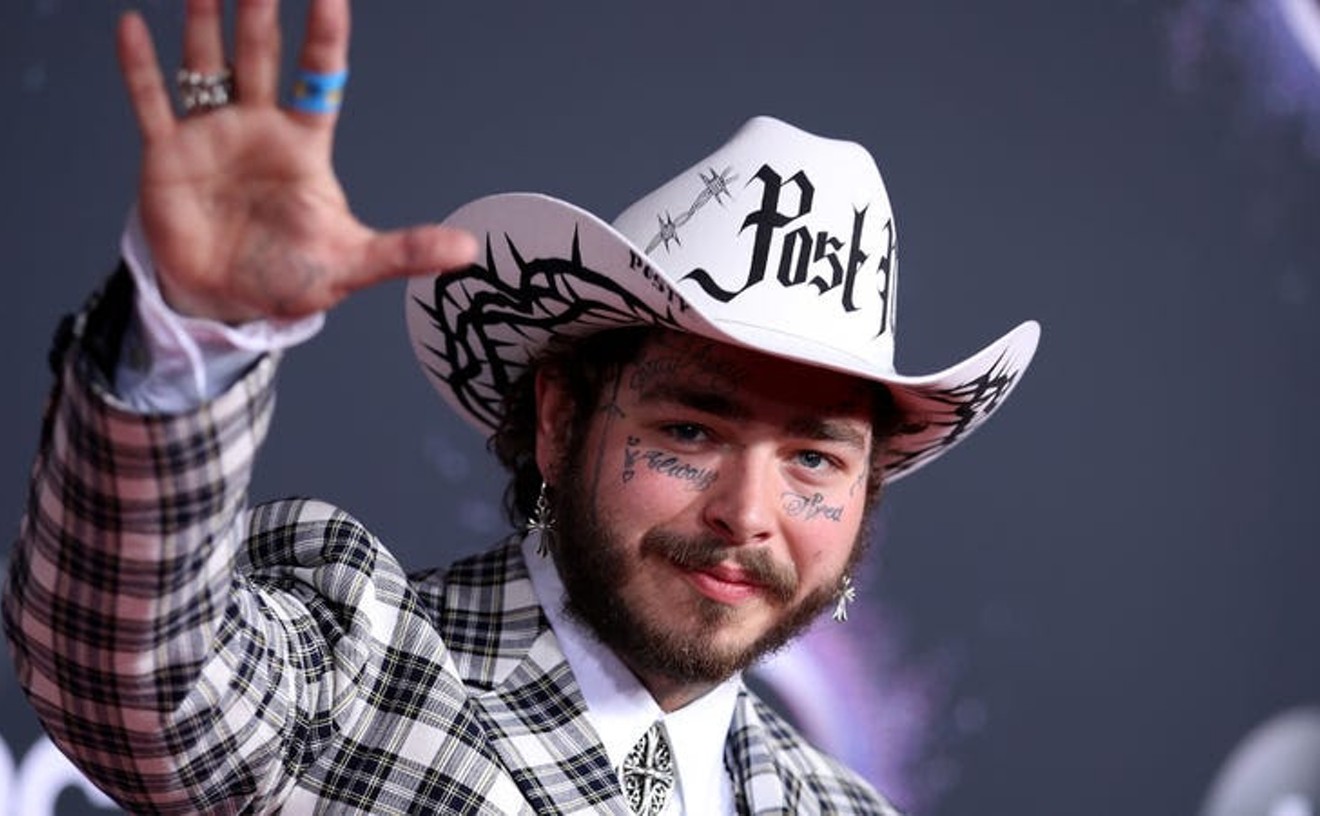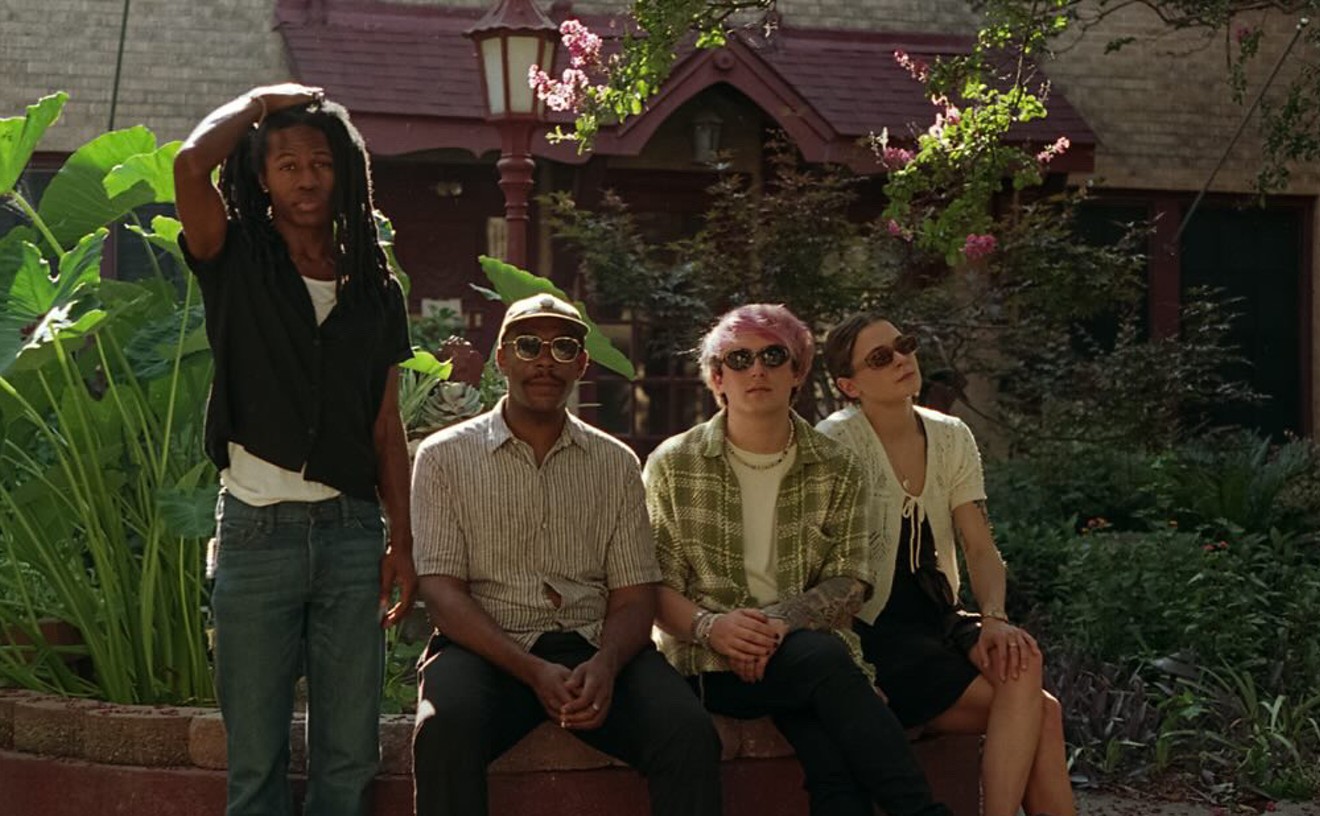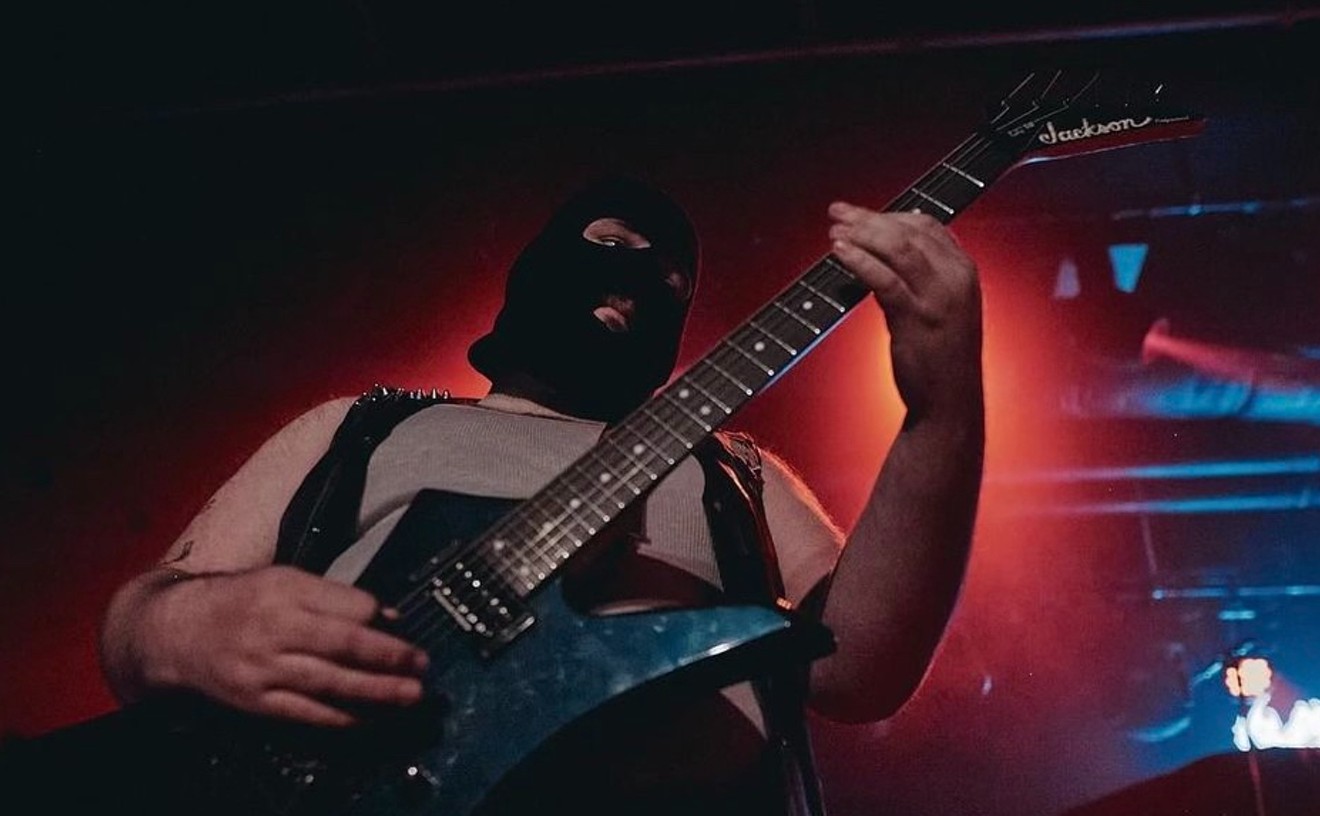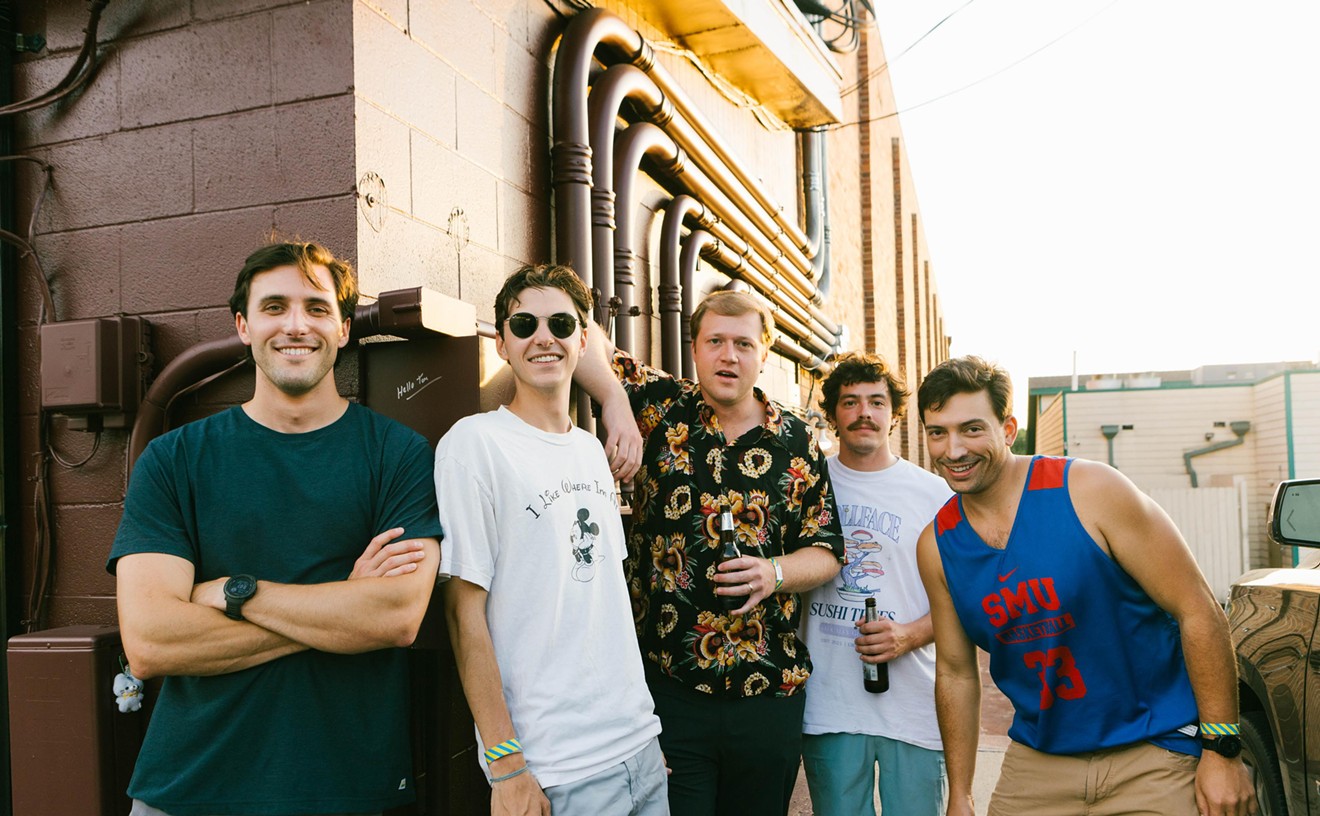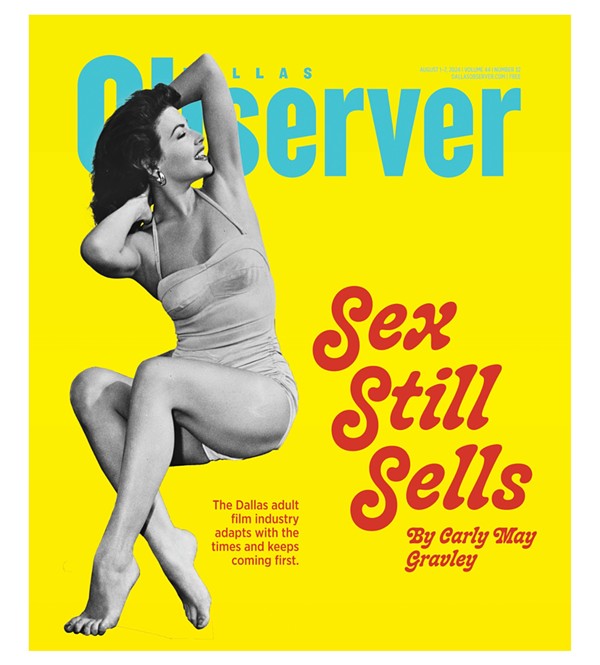Welcome to Local Music 'Mericans
, where we meet some of the people behind the local music scene --
those who aren't necessarily members of local bands, but more the people
who make the scene move.
Mike Ziemer is a lot of things -- a promoter, a manager, a marketing whiz, an entrepreneur and a bit of a talent scout, too -- although mostly in a genre of rock that goes overlooked by some circles. Ziemer's point of focus is the youth-based rock realm -- sometimes pigeonholed as "mallpunk" -- where undercurrents of emo, pop, classic punk, metal and even sprinklings of hip-hop and electronic music come together. Essentially, though, it's youngster rock. And it was a niche that went largely unaddressed in the region until Ziemer came along with his Third String Productions operation .
His style and personality show all the signs of a typical high-profile concert promoter -- irreverence, flamboyance, and melodramatic passion. Say what you will about those traits, but his operation, and his vision, have proved very successful over the years.
TSPR's day-long shows at Plano Centre drew thousands of kids a few years ago, and, these days, they pack places like the Prophet Bar and Trees with that same audiences of punk youths. Rightfully: Many of the acts these fans so care about come from this region, too.
After the jump, he tells us how he got involved in the scene at such a young age, and how he was able to turn it into a career.
I'm picturing Mike Ziemer as youngster. He's at a backyard party. There's a makeshift
stage. A couple of neighborhood bands. A keg, maybe? And you're collecting a cover at
the front door. Is that a pretty accurate guess?
[Laughs.] If only I was smart enough to start that young! As a kid, until
about 16, all I did was play sports. I played lots of baseball,
soccer and a couple years of basketball through my freshman year of high school. I did start promoting my friend's band at 14 and got a little
taste of being a promoter. On my 16th birthday, I actually had a DJ and
two bands play my party -- one of which would become Hellogoodbye. So that's a fun
fact!
Was there another promoter (or venue or company) that you observed in
the beginning that made you think, "I can do that... and I can do it way
better."
I've always looked up to [Warped Tour Promoter] Kevin Lyman and
always strove to take his ideas to a whole new level. When I go to
concerts and festivals, I've always been the kind of person to think,
"This would be even cooler if..." I don't mean that in a negative, "Oh my
God, this sucks!" way. It's just the way I think: "What can I do to make
this a better event?" I met Kevin after he was in Alternative Press as an
icon where he stated, "My family will not take over my company; it'll be
a kid that grew up around Warped Tour." I emailed him and told him that
it was going to be me and got to talk with him at Warped Tour!
You've spent a lot of time building up relationships with a specific,
young genre of bands -- some local, some national. But, at some point,
the repertoire seemed to expand to the point where it was all kinds of
different bands -- young and new ones, for sure, but a wide variety of
sounds. True? Tell us about that transition period.
I started out with the thought process that I really was "third string"
when it came to shows, meaning that I had the bands no other venue wanted to
help. I was heavy into pop-punk and punk bands in high school, so I put
on shows that I would want to watch. I worked with bands that were on
my iPod. As I built better relationships with agents, they'd say "Hey,
you should work this band into your festival. I know it's different, but
it'll be cool!" My first real memory of thinking "OK, we'll try that
out..." was probably as early as my second show when [Dallas based hip-hop group] One Up played in the middle of a line up full of pop-punk
bands like Waking Ashland and Minority. More recently, we threw the
newly reunited Gatsby's American Dream on South By So What's lineup,
which was full of heavy acts. I've always been about mixing up genres
and styles, though. It just works better to have the variety.
You've had some help over the years -- folks like Mike Henry and Jonathan Swinnea. Tell us about those early days, and the
struggle to get those first few shows together.
I started Third String in March 2004 by accident. I had no clue what I
was doing. I looked to [former Buzz Oven curator] Aden Holt for guidance in the beginning as well as art design and promo
help. In the fall, I realized school was tougher than expected and I
needed help. So, I posted a message on my website and got a bunch of
emails. The only one I responded to for some reason was Michael Henry's, and
all I said was "Hit me up on AIM." He did, and then he came and helped a
show at Plano Centre that November. The rest is history! He worked
with me for almost four years. In spring 2005, I assembled a team of college
friends to help me promote shows as well. Jonathan is the one that
proved the most because he started out being the door guy in exchange
for Chipotle coupons. He worked his way up to head of marketing when
Michael left to pursue bigger opportunities. We were having so much fun
that there wasn't much struggle aside from dealing with kids being
assholes -- writing on bathroom walls, stickering the venue, and
sneaking in. All the promotion was fun, though. We'd sneak into schools when
janitors were cleaning at night and put up posters and cover cars while
kids were in school. I guess the biggest obstacle was managing a street
team that went from, like, five kids to about 75 kids in a very short time. But Michael was pro at that!
What local success story bands are you most proud of today? Are there
artists from DFW that you feel you played a major role in their success?
Forever The Sickest Kids, for sure. I remember meeting them in Dallas at
Zini's pizza when they were The Flipside when I was 18 to talk about
managing them. I put on their first shows when they were known as The
Flipside. I do actually feel like I'm a part of all their success. Seven
years later, I still do their shows! Also, seeing the guys in Memphis
May Fire getting bigger and bigger still is awesome! As soon as their
first CD was done, they gave it to me and I started managing them and
booking their first 200 or so tour dates. I was all about those dudes.
Artist Vs. Poet literally started in my living room when Tarcy was
living with me. Red Car Wire was a band I helped build up and even got
labels talking to.
What local band is the city and the country about to blown away by?
That's a tough question. The [mallpunk] scene just isn't
the same anymore. It's extremely saturated. I'm working with Taylor
Thrash, and I feel like his new songs are going to launch him nationally.
As far as heavier bands, Set The Sun are about to release an EP that
reminds me of bands like Memphis May Fire from back in the day. Also,
the most underrated artist in Dallas is still Dustin Cavazos. He's a
hip-hop artist, producer and awesome bike-riding guy with all the heart in
the world. He's so talented. My guess is that the next new breakout
band from Dallas is practicing somewhere in suburbia right now in their
parents garage. I'm hoping to find them!






